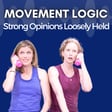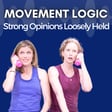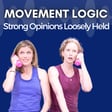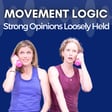
105: Strength by Suggestion: the Placebo Effect and Exercise
In this episode of the Movement Logic Podcast, Dr. Sarah Court explores the fascinating impact of the placebo effect on sports performance and rehabilitation. Dr. Court discusses recent studies, including a unique experiment involving a pink, calorie-free drink that boosted bench press performance among trained lifters. The episode delves into how beliefs and expectations can lead to measurable physiological changes, the historical context of the placebo effect, and its implications in physical therapy and exercise routines. Dr. Court also emphasizes the significance of positive mindsets in overcoming physical challenges and achieving fitness goals.
01:31 The Pink Drink Study: Exploring the Placebo Effect
02:36 Understanding the Placebo Effect
04:03 Historical Context and Research on Placebo
06:02 Detailed Analysis of the Pink Drink Study
10:19 Implications of the Placebo Effect in Exercise
12:08 Placebo Effect in Rehabilitation and Pain Science
14:49 Practical Takeaways for Enhancing Performance
16:49 Mindset and Belief in Physical Therapy
20:25 Encouragement and Final Thoughts
Bone Density Course Interest List Sign Up Here
References:
The Placebo and Nocebo effect on sports performance: A systematic review
Placebo effects on kayak sprint performance in child athletes



